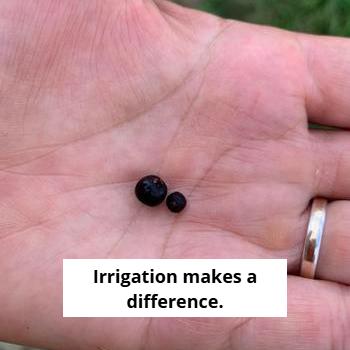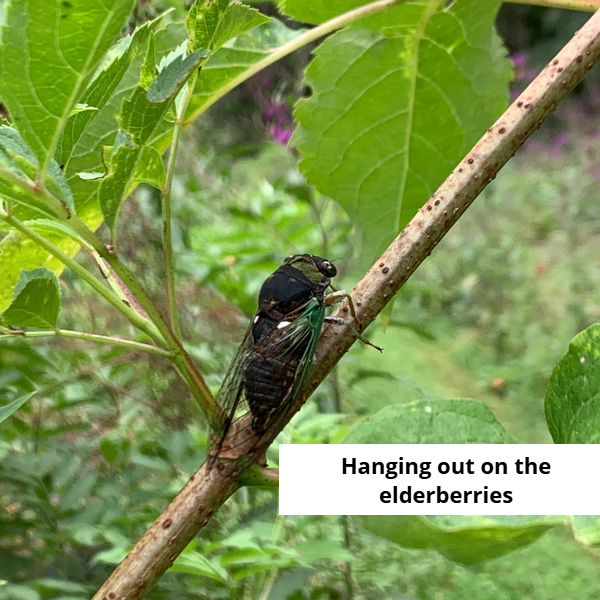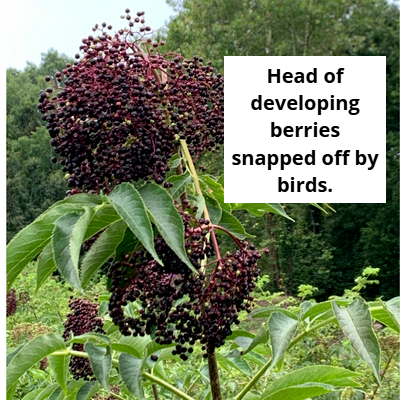Summer 2025 Recap

Summer 2025 proved a season of extremes here at Ohio Elderberry Farm + Kitchen.
Our part of southern Ohio experienced regular downpours throughout June. I worried that the persistent rains while the elderberries were blooming could result in incomplete pollination. Can heavy rain rinse pollen off flower stamens?
To alleviate my worrying I engaged in some hand pollination - plucking a flower from one cultivar and simply tapping it against the flower of another. It occurred to me that this behavior might be a form of mystical thinking, an unproven activity that allowed me to believe I have some control over the success of pollination.
However, later in the summer I happened upon a small study from University of Missouri Agroforestry indicating that cross-cultivar pollen exposure increases the speed of pollination. The researchers advocated hand pollination to deal with issues of incomplete fertilization. Apparently I was on the right track!
The rains did not stop the arrival of Brood XIV in mid-May. I’ve experienced several cicada emergences, but never one as apocalyptic as this.
If it hasn’t been done yet, cicada emergence is ripe for use as a horror movie scenario–an ongoing high pitch scream of cicada calls thrummed from the woods around our farm.
Cicadas are supposed to target larger woody plants, but there were a number of cicadas that missed that memo - and they left track marks of their attempts to deposit their eggs on the elderberry stems. It is hard to say how much damage they did - I didn’t see any stems dying from cicada damage as I saw on surrounding hardwoods (especially oaks), but they certainly didn’t strengthen the plants.

Finally, as berries started developing the rains blew away and we enjoyed weeks of clear skies and strong sun, so much so that by the time we started harvesting in August we elected to run the irrigation lines.
Thanks to that irrigation, late summer dryness didn’t limit our harvest. And I don’t think the cicada damage to stems had much affect on harvest either. However, both of these events affected harvest indirectly.
This summer we saw more aggressive bird competition for berries than ever before. Why? Research shows that cicada emergence correlates with increased bird population. When birds have increased access to food (i.e. eating cicadas), they in turn have larger and more successful reproduction (if you are interested in the more complex interaction between various bird species and cicadas you can read the report here).
All those new birds were hungry this August. They were also thirsty due to 4+ weeks without rain, and our berries were the solution to their problems. And the start of our problems...

Supposedly, increased bird population can persist for 3 years after cicada emergence, so we will be spending this winter preparing an improved bird deterrence plan.
In any event, we managed to wrestle some berries away from the birds and will be bringing that to you in the form of Ohio Elderberry Farm + Kitchen Syrup this fall and winter.


0 comments
Leave a comment